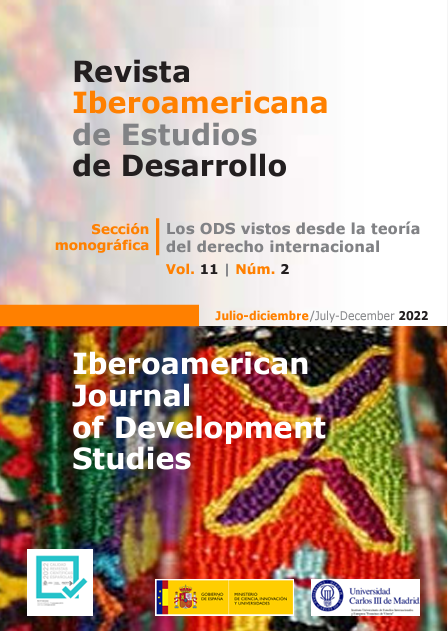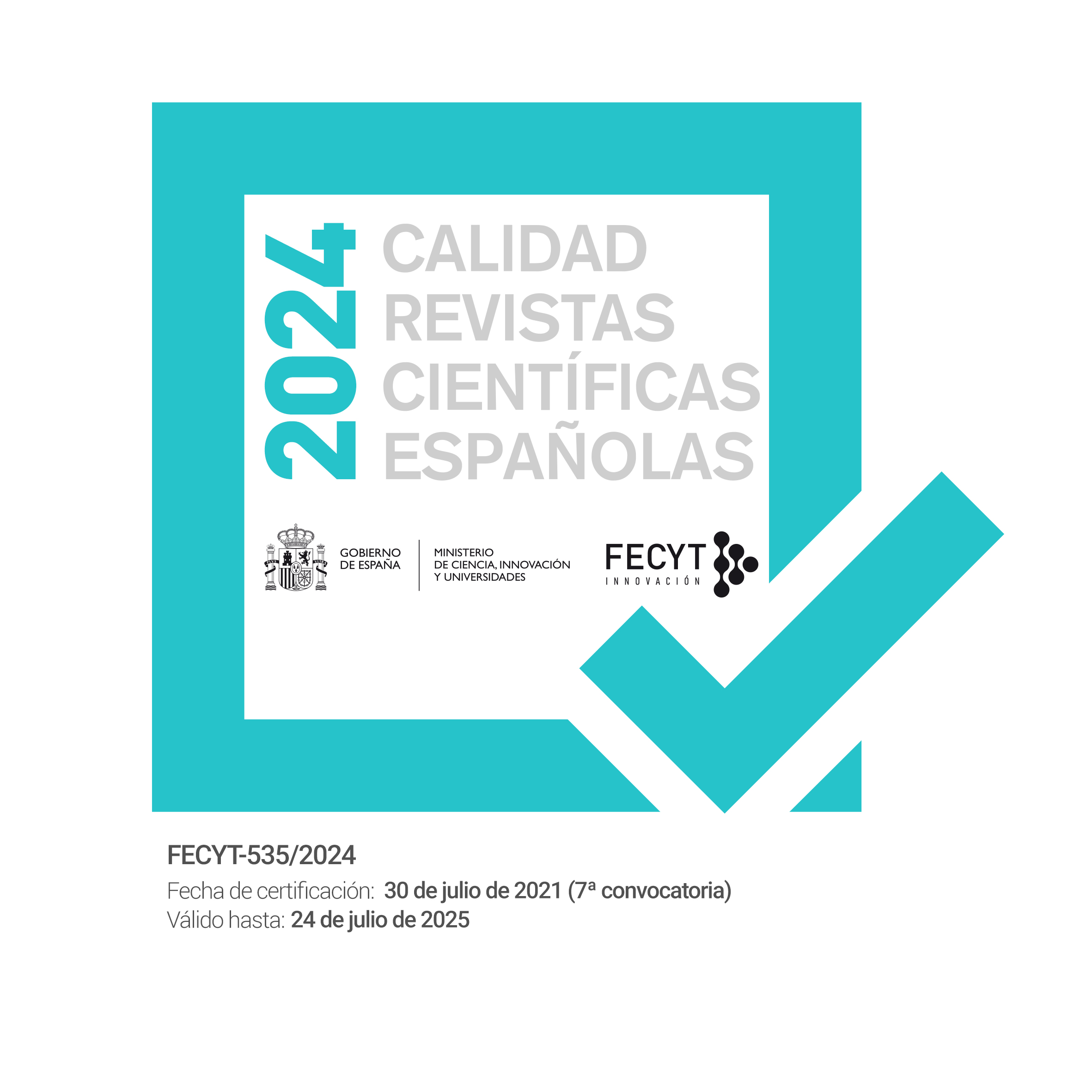The fair trade in the institutional policies and practices of the Spanish universities
DOI:
https://doi.org/10.26754/ojs_ried/ijds.666Keywords:
fair trade, sustainable consumption, universities, 2030 AgendaAbstract
Fair trade has been recognized as an effective way of eradicating poverty and sustainable development. It is a reality increasingly supported by consumers; in 2019, the entities that market fair trade products invoiced more than 138,5 million euros in Spain. This support has been encouraged by greater social concern for global problems such as poverty or exploitation, and for education and development cooperation actions and policies, among others. In this context, Spanish universities have been working for more than a decade to bring fair trade closer to the university community. Aware of their impact on the production and consumption model, 21 universities have positioned themselves politically in favour of fair trade. This commitment has reached the Executive Committee of CRUE-Internationalization and Cooperation, which approved its Declaration of Spanish Universities in favour of fair trade and responsible consumption in 2017, with the aim of contributing to «guarantee sustainable consumption and production models». During all this time, the institutional positioning has been accompanied by policies for the integration of ecological and fair trade criteria in its purchases, the formation of work groups, the implementation of research and teaching actions, the development of strategies for mainstreaming of sustainable consumption, and international cooperation projects with producer groups, as well as the participation in interuniversity networks, such as Fair Trade Universities, coordinated by the IDEAS cooperative at the state level, and which has become a backbone, binder and enhancer of this commitment, together with the subgroup of fair trade and responsible consumption of the CRUE.
Downloads
References
AGOUÉS C (2020). El comercio justo en el marco de la contratación pública. Cuadernos Europeos de Deusto 63:237-267.
BERRY C, ROMERO M (2021). The fair trade food labeling health halo: effects of fair trade labeling on consumption and perceived healthfulness. Food Quality and Preference, vol. 94.
CACHO SÁNCHEZ Y, LLANO MARTÍNEZ L, POLANCO PORRAS A (2011a). La Universidad como agente de desarrollo en España. Publican Ediciones, Universidad de Cantabria.
CACHO SÁNCHEZ Y, LLANO MARTÍNEZ L, POLANCO PORRAS A (2011b). Guía divulgativa sobre Comercio Justo de la Universidad de Cantabria. Guía divulgativa II. Universidad de Cantabria.
CECJ (2016). 30 años de Comercio Justo en España. Coordinadora Estatal de Comercio Justo, 1 de febrero de 2016. http://comerciojusto.org/30-anos-de-comercio-justo-en-espana/, acceso 22 de diciembre de 2019:
CECJ (2019). Informe sobre el Comercio Justo en España 2018. Coordinadora Estatal de Comercio Justo.
CECJ (2020). Informe sobre el Comercio Justo en España 2019. Coordinadora Estatal de Comercio Justo.
COMET HERRERA D (2016). Comercio Justo, Universidad y Agenda 2030 para el Desarrollo Sostenible. Observatorio de Cooperación Universitaria para el Desarrollo (OCUD).
COMET HERRERA D (2017). Comercio justo: una alternativa comercial sostenible y respetuosa con los Derechos Humanos. Revista de Antropología Experimental 16:71-78. Universidad de Jaén.
COMET HERRERA D, CARRACA A (2017). Los Objetivos de Desarrollo Sostenible y el Comercio Justo: un camino en común. La voz de los productores. Iniciativas de Economía Alternativa y Solidaria (IDEAS).
COMISIÓN EUROPEA (2016). The European Year for Development ‒ Citzens’ views on development, cooperation and aid. TNS Opinion & Social.
COMISIÓN EUROPEA (2018a). Europeans, Agriculture and the CAP. Special Eurobarometer 473 ‒ December 2017. TNS Opinion & Social.
COMISIÓN EUROPEA (2018b). EU citizens and development cooperation. Special Eurobarometer 476 – June-July 2018. TNS Opinion & Social.
DE LEEUW A ET AL. (2014). Gender Differences in Psychosocial Determinants of University Students’ Intentions to Buy Fair Trade Products. J Consum Policy 37:485-505.
FAIRTRADE INTERNATIONAL (2019). Literature Review on Public Attitudes to Fair Trade and ethical consumption. Trade Fair Live Fairproject (TFLF).
FERRO-SOTO C, MILI S (2013). Desarrollo rural e internacionalización mediante redes de Comercio Justo del café. Un estudio del caso. Cuadernos de Desarrollo Rural 10(72).
FRIDELL G (2014). The University and the Moral Imperative of Fair Trade Coffee. Journal of Academic Ethics 2:141-159.
HERNÁNDEZ SAMPIERI R, FERNÁNDEZ COLLADO C, BAPTISTA LUCIO MP (2014). Metodología de la Investigación. McGraw-Hill, Madrid.
LEAL FILHO W, LANGE SALVIA A, PRETORIUS RW, LONDERO BRANDLI L, MANOLAS E, ALVES F, AZEITEIRO U, ROGERS J, SHIEL C, DO PACO A (2019). Universities as Living Labs for Sustainable Development: Supporting the implementation of the Sustainable Development Goals. Sprinter.
LERNOUD J, WILLER H (2017). The Organic and Fairtrade Market 2015. The World of Organic Agriculture 2017. 18th edition. FiBL and IFOAM ‒ Organics International, Frick and Bonn, pp. 143-148.
MCMURTRY JJ, MEDALYE J, REED D (2018). Environmental, Ethical Trade, and Fair Trade Purchasing Policies: Some Challenges of Promoting Sustainability in Canadian Universities. Accounting for Social Value. University of Toronto Press, Toronto, pp. 189-229.
NEWHOLM T, SHAW D (2007). Studying the ethical consumer: A review of research. Journal of Consumer Behaviour 6(5).
SÁNCHEZ FLORES FA (2019). Fundamentos epistémicos de la investigación cualitativa y cuantitativa: consensos y disensos. Revista Digital de Investigación en Docencia Universitaria 13(1):102-122.
SETEM (2006). El Comercio Justo en España 2006. Icaria Editorial.
UDL (2016). Guia de bones pràctiques ambientals i ambientalització de compres per al personal de restauració de la UDL. Universitat de Lleida.
UJA (2008). La UJA se convierte en la primera Universidad española por el Comercio Justo, 10 de mayo de 2008. https://diariodigital.ujaen.es/internacional/la-uja-se-convierte-en-la-primera-universidad-espanola-por-el-comercio-justo, acceso 22 de diciembre de 2019.
UNESCO (2017). Education for Sustainable Development Goals: Learning Objectives. Organización de las Naciones Unidas para la Educación la Ciencia y la Cultura.
URJC (2016). Guía de Buenas Prácticas para la realización de eventos sostenibles en la URJC. Universidad Rey Juan Carlos de Madrid.
Downloads
Published
How to Cite
Issue
Section
License
Copyright (c) 2022 David Comet-Herrera

This work is licensed under a Creative Commons Attribution-NonCommercial-NoDerivatives 4.0 International License.








